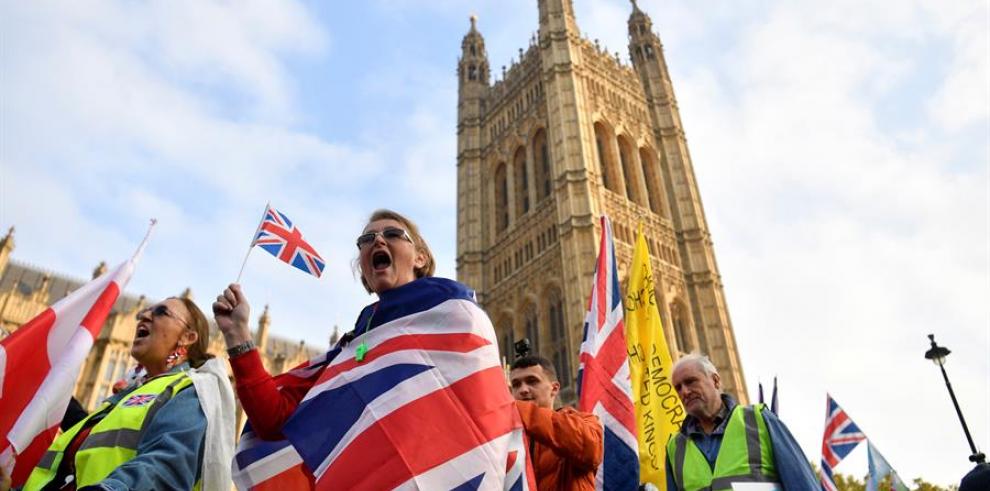Business fears Corbyn, suspicious of Johnson

The City of London fears that a Jeremy Corbyn Labour government may adopt “anti-business” measures, but is suspicious of a Boris Johnson (Conservative) hard “Brexit.”
Financial markets and companies are clear that the December 12 elections will mark the beginning of a new stage for the UK economy. The result will determine both the conditions of the country leaving the European Union (EU) and a possible change in the size and shape of the State after a decade of austerity
A clear victory for Johnson would pave the way for a divorce negotiated with Brussels, so analysts agree that it would boost investment, the price of the pound sterling and the economic prospects of the United Kingdom in the short term.
The reduction of political uncertainty, together with the fiscal stimuli that Johnson plans, could translate into a rate hike in the second half of 2020, with the possibility of reaching 1.5% a year and a half later (compared to the current 0.75%), according to the forecasts of the consulting firm Capital Economics.
The firm Nomura estimates that the pound would react to a conservative majority with a rise of around 3.8% against the US dollar
Experts warn, however, that the details of the future commercial relationship between both sides of the English Channel will still be in the air even if the British Parliament ratifies the pact that Johnson has reached with Brussels.
If the United Kingdom leaves the EU on January 31 based on that agreement, the complex negotiations to design a new common commercial framework will begin at that same time, the details of which are not contemplated in the exit agreement.
That framework must be completed before December 2020, when the transition period ends. If that limit is not met, nor the deadline extended, the UK would be faced with a scenario similar to that of a Brexit ” without an agreement one year after breaking ties with the EU.
That possibility can counteract the optimism generated by a Conservative victory, Capital Economics chief economist Paul Dales told Efe News Agency
If a Conservative government does not quickly agree on a new trade relationship or request an extension of the transition, experts believe that economic expansion can be weakened and the rate-raising schedule postponed
Slower GDP growth
According to calculations of the UK Government published in November 2018, a free trade agreement with the EU in the style of Canada, as promoted by the Johnson agreement, would mean that the British GDP would grow 6.7% less in the next 15 years, compared to continuing in the block.
Despite these negative omens, some experts believe that markets can see positive aspects in that scenario.”With the Johnson agreement, much more autonomy will come (for the United Kingdom) and that means flexibility to obtain better economic results in terms of trade, labor movement and legislation in general,” said Bethel Loh, an analyst at ThinkMarkets Minort The AgencyThat would open the door to a further delay in leaving the EU, lengthening the uncertainty, or it would once again put on the table the possibility of a breakdown.In this scenario, the fiscal stimuli of some 20,000 million pounds (23,680 million euros) posed by conservatives could be paralyzed, and interest rates could be reduced to 0.50% before going back, according to Capital Economics.
Labour Victory
A Labour government would ensure a smooth Brexit and a closer future relationship with the EU and would imply at the same time the reopening of negotiations with Brussels and foreseeably a new referendum. At the same time, Corbyn proposes to increase public spending to levels not seen since the 1970s and to renationalize rail and service companies.
Economists estimate that a Corbyn-led executive with a majority in the House of Commons could launch stimuli worth 55, billion pounds annually). Some analysts argue that the increase in spending proposed by Labour can boost the British economy, but they point out that this push may be overshadowed by other measures
“





